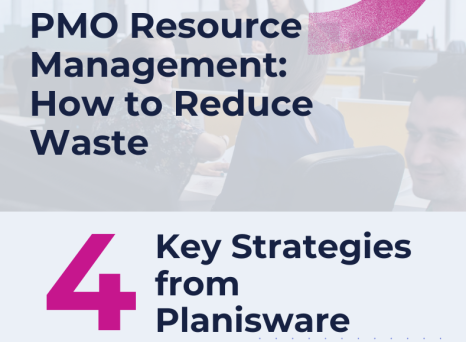I only write when inspiration strikes. Fortunately, it strikes at nine every morning.
- William Faulkner
Project managers are often seen as the masters of time management, juggling constantly changing timelines and plans. But many struggle to transfer this productivity to their everyday tasks. Finding a time in the day, where energy levels are high and you are inspired to produce work that really makes a difference can be hard to come across.
Time management tools alone rarely produce the desired effects if they are not backed up with tested strategies and skills. Honing in on these methods and learning the basic principles to avoid wasted hours in the office will not only shorten your work week but also increase your productivity.
Learn the skills
- Like many other skills we've covered on our blog, sometimes it's machines that offer the best example for humans. Brian Griffiths demonstrates how to manage time more effectively according to machines in this animated Ted Talk that grips you from the outset watch time: 5 mins.We learn from machines why prioritizing tasks is often the wrong strategy and how the secret to avoiding interruptions is grouping them.
- Time management is certainly about more than life hacks, as Erich Dierdorff illustrates with his example of how buying a good set of knives does not instantly make you a good chef read time: 8 mins. According to his research, three skills separate success from failure: awareness, arrangement, and adaption.
- Lila MacLellan gives us a complete 7 step guide on how to stop procrastinating, offering examples to put each procrastination into context read time 9 mins. Essential steps include managing your emotions, naming your delays, and time traveling to your future self.
- The author of the book "procrastinate on purpose" - Rory Vaden - uses personal anecdotes to teach us how to multiply our time watch time 18 mins. Vaden makes a clear distinction between urgency, importance and significance emphasizing how a three dimensional thinker combines all three elements. Ultimately, the significance calculation changes everything.
Getting to grips with these skills will offer further clarity when you eventually decide to create a to-do list or use time management software. However, if you want to take your skills to the next level testing the methods of some of the most productive people on the planet can be the best place to start.
Test the methods
- Steve Jobs' love affair with focus drove huge success at Apple through one simple technique that put daily achievements as the central metric for measuring project progress read time 4 mins. Thomas Koulopoulos explains how Jobs used objectives to give clarity on the daily achievement needed. The aim of one daily goal helps maintain focus on the critical rather than the urgent and ensures you end each day with an accomplishment.
- Elon Musk also relies on a time management method called time boxing watch time 11 mins. Thomas Frank dissects Musk's technique explaining why and how we should use it as well as how to deal with interruptions when your schedule doesn't go as planned.
- However, Elon's method is not for everyone, and ToDoist offers a complete guide on time boxing's close relative: time blocking read time 9 mins. As the name suggests, this method involves dividing your days into blocks of time, promoting focused deep work, and knocking out any shallow work. A leading advocate for this technique, Cal Newport also debunks any concerns people have with this technique and offers practical advice based on his experience read time 3 mins.
- Farnam Street back up Cal Newport's claims on the importance of scheduling and push one single message to us: stop the to-do list read time 4 mins. This counter-intuitive strategy leads to an ever-growing list and encourages us to say yes to things when in reality, we are over capacity.
Productivity is built on awareness of where you are putting your energy and ensuring that the task you say yes to is really worth your attention.


